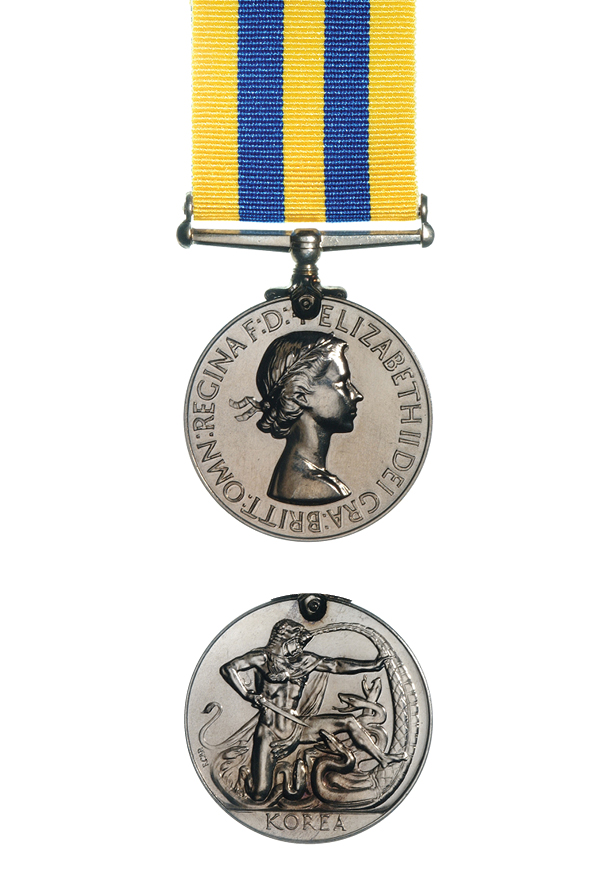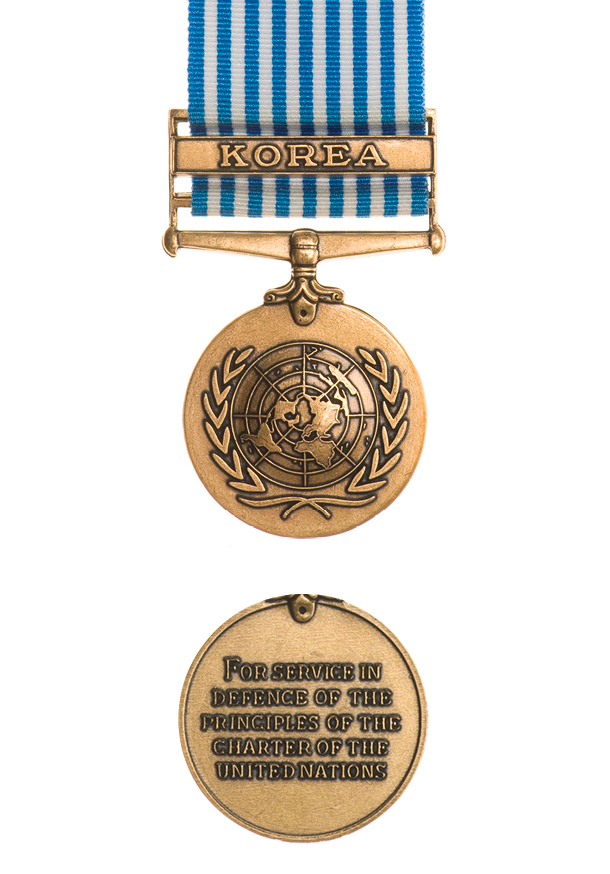Display No. 21I
Campaign Medals – Korean War
Campaign or service medals are awarded to those who serve in specified campaigns or military operations. They recognise general military service in war (in contrast to Decorations which are issued for acts of heroism and bravery). The Korean War (1950-1953) was the first event in which the United Nations armed forces took a combat role – involving the participation of member states, including New Zealand, in a multinational effort to stop the North Korean takeover of South Korea. New Zealanders who served in the Korean War were eligible for the Korea Medal (to recognise Commonwealth troops) and the United Nations Service Medal (Korea), an international military decoration awarded by the UN to all participating forces.
Medal(s)
Medal Description [Left to Right]:
The Korea Medal

This medal was instituted in 1951, to recognise the service of Commonwealth troops in the Korean War between 2 July 1950 and 27 July 1953. It is sometimes referred to as the Queen’s Korea Medal to differentiate it from the United Nations Korea Medal. For naval forces, qualification is 28 days or more afloat in the operational area or at least one day of shore duty. The medal’s reverse features Hercules wrestling the Hydra – a symbolic representation of communism. The ribbon has alternating yellow and blue stripes. Blue represents the United Nations.
United Nations Medal Korea

The United Nations Medal (Korea) was awarded for service during the Korean War and the year following the armistice (July 1950 to July 1954). It was the first international award created by the United Nations and features the UN emblem of a projection map of the world between two olive branches. The medal recognises the service of all military troops participating as part of the UN forces in Korea and was manufactured in the language of each country. It was also awarded to a limited range of civilians whose organisations were certified by the United Nations Commander-in-Chief as having directly supported military operations in Korea between 1950 and 1954.

